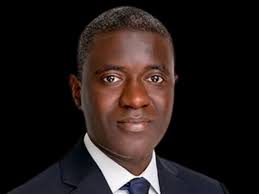Nigeria’s journey towards a digitally connected future is facing a serious, yet often overlooked, obstacle: access denial to critical telecom facilities. At the Critical National Information Infrastructure (CNII) Protection and Resilience Workshop Series held on October 28, 2024, Dr. Aminu Maida painted a vivid picture of how this issue is stifling progress.
Organized by the National Cybersecurity Coordination Centre (NCCC) under the Office of the National Security Adviser, the workshop brought together policymakers and regulators to discuss challenges and strategies for securing the country’s digital backbone. Dr. Maida’s speech, however, turned the spotlight on an issue that goes beyond infrastructure damage or theft—one rooted in human actions and decisions.
“In 2023 alone, we faced over 20,000 cases of site access denial,” Dr. Maida disclosed. He explained that these cases arise when property owners, communities, or even government entities block telecom operators from accessing critical sites to install, repair, or upgrade equipment. “Every single denial is more than just a statistic—it’s a barrier preventing millions of Nigerians from experiencing improved connectivity, stalling our progress towards a robust digital economy.”
The Human Cost of Access Denial
The consequences of these actions ripple far and wide. For urban residents, it might mean dropped calls or slower internet speeds. But in rural areas, where connectivity often hangs by a thread, access denial can mean isolation from crucial services like online education, telemedicine, or emergency communications.
Consider the story of a remote community in northern Nigeria where students rely on internet connectivity to participate in e-learning programs. When the telecom operator’s engineers were denied access to repair damaged equipment, the network remained down for weeks, cutting students off from their lessons. “These denials don’t just hinder infrastructure; they rob communities of opportunities,” Dr. Maida stressed.
A Shared Responsibility
Dr. Maida urged Nigerians to rethink their approach to telecom facilities. While some cases of access denial stem from legitimate concerns—such as fears about radiation or disputes over compensation—he argued that these challenges can be addressed through dialogue and collaboration. “We need a collective mindset shift. The digital economy doesn’t belong to telecom operators alone; it belongs to all of us.”
He also called on the government at all levels to play a more active role in mediating disputes and ensuring that telecom operators have the necessary support to expand and maintain their networks. “If we are to achieve the ambitious targets for Nigeria’s digital economy, protecting and granting access to telecom facilities must become a priority.”
A Call to Action
The CNII Protection and Resilience Workshop concluded with a renewed commitment to safeguarding Nigeria’s critical digital infrastructure. Attendees agreed that while cybersecurity remains a top concern, addressing access denial is equally vital to ensuring the country’s digital future.
Dr. Maida’s message was clear: “Every Nigerian deserves to be connected. But for that to happen, we must break down the barriers—literal and figurative—that are holding us back.” His passionate appeal struck a chord with participants, highlighting the human impact of decisions made at every level of society.
As Nigeria races toward becoming a digital leader in Africa, the challenge of access denial reminds us that progress isn’t just about technology; it’s about the people and communities who depend on it.
Anthony Emeka Nwosu




